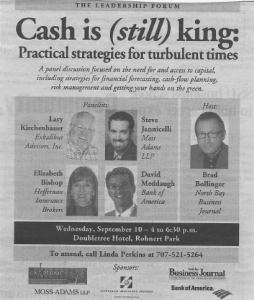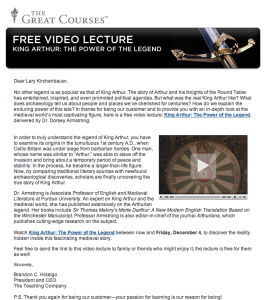This week, our magical mystery tour continues with another retrospective about some of the timeless issues that of us face. M aybe we can figure out why some of these challenges are so hard to kill?
I’ve grabbed a few quotes to re-introduce those concepts (and give you collective access to a bunch of them at once.)

What are Some of the Most Important Leadership Concepts?
None of these issues has gone away. We’re continually battling the same challenges … occasionally finding temporary resolution or respite, but often juggling so many of them because we don’t take time to resolve any of them.
“Success breeds complacency. Complacency breeds failure. Only the paranoid survive.” Andrew Grove
“If you cannot get rid of the family skeleton, you may as well make it dance.” George Bernard Shaw
These quotes launched a few columns about leadership succession and the countless midsize businesses that don’t have a management succession plan in place.
Middle market companies are invariably hesitant to identify the next generation of leadership … because it’s too soon, too gnarly or too controversial. That’s at the root of why so few family businesses ever make it to the third generation.
Not so long ago, a Family Business survey found fewer than half of those executives expecting to retire within the next five years have selected a successor, and it gets much worse for those expecting to retire later. It’s baffling when you realize that 86.3 percent of those same family businesses expect they will still control their businesses in five years?”
Recent research confirms that not much has changed. If you know that exit and succession events are both inevitable and imminent, why haven’t you started to take the necessary steps to achieve a smooth transition of leadership as well as financial independence?
“It’s all about the bucks kid, the rest is conversation.” Gordon Gekko, Wall Street
Wedded to these succession struggles are the inappropriate and unfair compensation schemes that ignite powerful family emotions.
- What standard should be used to implement a prudent executive compensation plan?
- Fairness?
- Equity?
- Performance?
- Peer comparability?
These questions remain paramount for all businesses but for families, they’re particularly painful.
Establishing a fair and prudent compensation policy that emphasizes the “business” part of the “family business” is vital to creating a balanced and objective compensation policy that will be respected by everyone.
“Teach a parrot the terms ‘supply and demand’ and you’ve got an economist.” — Thomas Carlyle
The economy is always on our minds, and the immutable laws of supply and demand are a foil for every job creation scheme imaginable.
While you might be able to wring a few more efficiencies out of your business, financial stability will remain elusive unless you can stimulate demand for your products and services. While you can’t ignore the economy, you can take steps to increase your sales by focusing on getting more at bats and making sure you’re stimulating demand at every opportunity.
“When planning for a year, plant corn. When planning for a decade, plant trees. When planning for life, train and educate people.” — Chinese Proverb
When speaking about communication, I’ve traversed a lot of territory over the years, from the importance of transparency to the communication of your company’s vision and mission. You’ll find an entire chapter on Transparency in my e-book, R.E.S.P.E.C.T. – 7 Remarkably Simple Steps to Earn Respect.
The importance of clarity and simplicity in your communication also can’t be overestimated. Make sure that when your vision, mission and strategy statements are tacked to the wall, everyone recognizes it’s the company they work for … and not some anonymous entity whose identity is muddled by impersonal, verbose and grandiloquent expressions. Here’s a Communication Matrix that might help you get started on the frequent communication that’s essential for all your employees
Question: What’s the #1 Leadership Lesson you’ve learned? You can easily add your comment below, or by visiting our Facebook Page or @Exkalibur on Twitter. I visit them every day and look forward to discussing these ideas and concepts with you.



